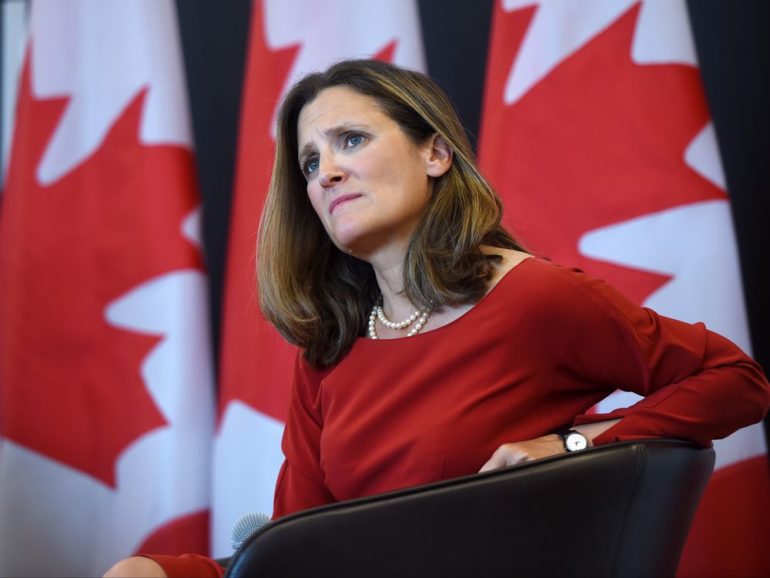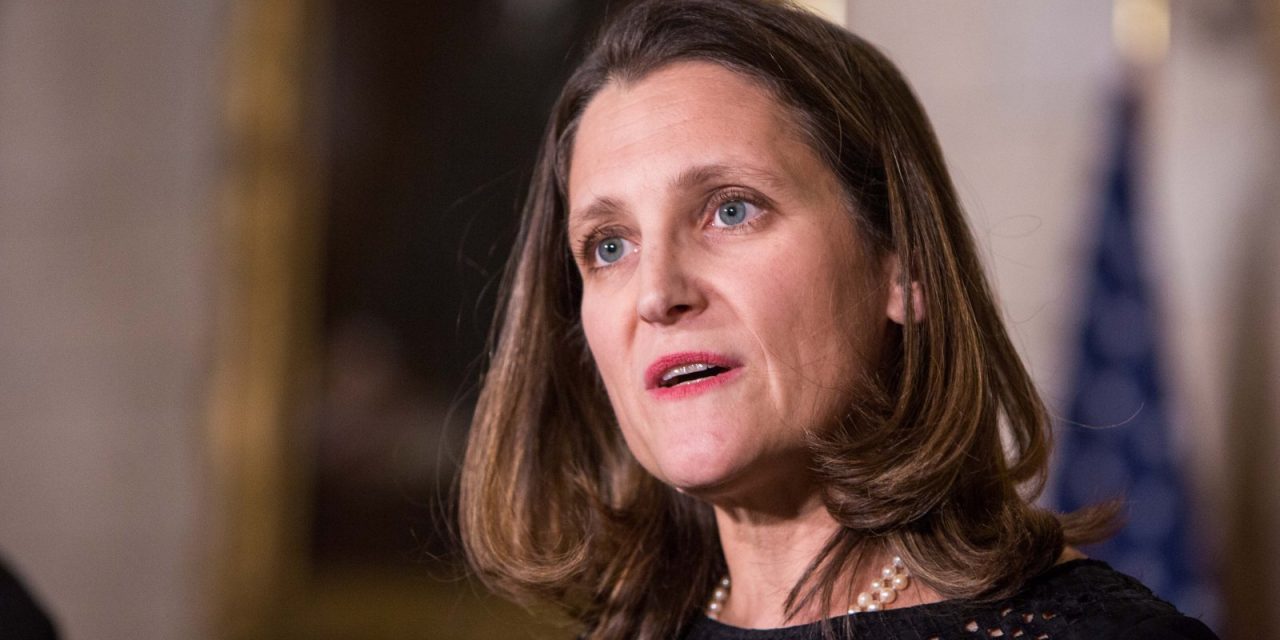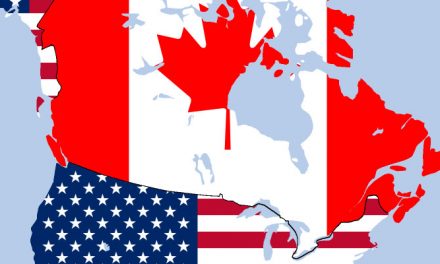By Mike De Souza
National Observer
As trade talks continue between Canada, the United States and Mexico, a collection of nearly 50 labour, environmental and anti-poverty groups is urging Foreign Affairs Minister Chrystia Freeland to champion climate change policies into the negotiations.
In a newly-released letter, the groups — including the Canadian Labour Congress, the National Farmers Union, Unifor and
Oxfam Canada — warned that the country’s current trade policies have a negative impact on sustainable development, the environment and communities.
“It jeopardizes the rights of Indigenous peoples, workers’ rights, women’s rights, and the right of communities to protect the
air, land and water they depend on,” said the May 2 letter to Freeland.
“This trade model privileges corporate rights and profits at the expense of people. We — members of Canada’s labour, trade,

Canadian Foreign Affairs Minister Chrystia Freeland speaks to reporters in Ottawa on Dec. 19, 2017. File photo by Alex Tétreault
justice and climate movements — call for an alternative model.”
The letter said that the ongoing negotiations regarding the North American Free Trade Agreement (NAFTA), provide an opportunity to reverse damage that they say has been caused by the agreement since 1994, including “an expansion of corporate rights over worker and community rights,” environmental damage, and weakening regulations to protect public health, consumers and food safety.
The groups also proposed that the minister adopt a dozen principles and values to promote a fairer agreement, including calls for the elimination of fossil fuel subsidies by all three parties, as well as a rule that prevents Canada from reducing its fossil fuel production, the protection of public services, and a gender analysis of the impacts of trade.
“An alternative model of trade must be rooted in principles of equity, the primacy of human rights — including the rights of Indigenous peoples, women and girls, workers, migrants, farmers, and communities — and social and ecological justice,” the letter said. “Furthermore, if Canada wishes to be an international champion of action on climate change, its trade policy must be compatible with its climate objectives.”






